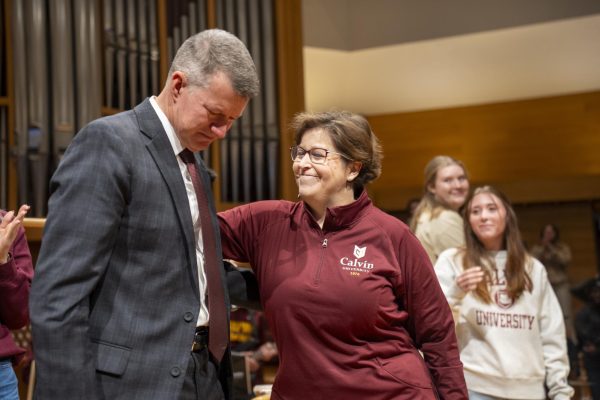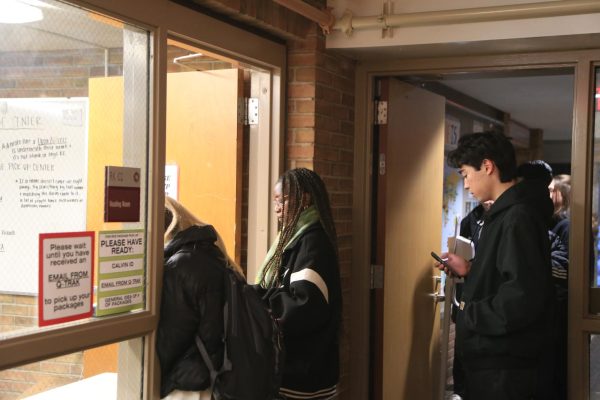Banff Mountain Film Festival World Tour
Since 2011, Calvin has hosted the Banff Mountain Film Festival World Tour, one of the world’s largest film festivals. Last Monday, Calvin—one of four venues in Michigan that held a viewing of the festival’s top films—brought in a large crowd of students and people from all over the area .
Crowds have dramatically increased over Calvin’s years of hosting the festival, and this year more than 700 people filled the CFAC to view the films. Seats in the main floor were filled, and the crowd spilled up into the balcony. Next year, environmental studies professor Jamie Skillen—who helped sponsor and bring the event to Calvin—hopes to see the festival sell out.
The festival’s epicenter is in Alberta, Canada, where the mountain village of Banff is located. Every November, thousands gather there to view the best films on mountain sports and culture. Though the festival receives nearly 400 submissions from outdoor filmmakers, daredevils and enthusiasts alike, only around ten films are selected as part of the “World Tour.”
But the energy is not contained in Banff; rather, the films seem to carry an infectious excitement with them.
“Audience participation is encouraged,” said Skillen. “Laughing, gasping, groaning and shrieking are all appropriate at moments—and, I’m afraid, this year so is crying.” At this, Skillen pulled out a tissue box for viewers’ easy access.
Films covered a wide range of topics this year, featuring sports like mountain biking, skiing, surfing, ultra-marathon running and alpine climbing, as well as touching on issues like environmental sustainability in the Appalachian Mountain range and the effects of storm-water runoff siltation on salamander habitat in mountain streams.
“My favorite video chronicled Tommy Caldwell and Alex Honnold’s record-breaking trek across the Fitz Traverse in Patagonia,” said junior Josh Nederhood, who attended the film festival for the first time this year. “I appreciated the enthusiasm of the other audience members. The chance to win free prizes wasn’t too bad, either.”
Outdoor companies like The North Face, Cliff Bar and Marmot sponsor the event, and a few lucky audience members win prizes like coffee, outdoor gear and ski lift tickets during the show’s intermission.
“The experience was very intentional—there was a strong sense of community and camaraderie amongst the moviegoers,” said junior Megan Pluymert, a returning film festival viewer.
Though many agree that the festival is highly entertaining and enriching, some critique the festival’s often-narrow focus on sports and activities that are somewhat exclusive and privileged.
“I would love to see a video made about getting better access to nature for people who are not as privileged to be able to go spend weeks trekking through the countryside,” said geography alumna Audrey Hughey.
Even with its shortcomings, Hughey still sees the highly beneficial potential of films that often critique our consumerist, business-oriented culture. “I think that the festival does encourage people to really question what they are doing with their lives and if there is a way they can be happier.”
In some ways, the festival offers a glimpse of an alternative lifestyle: one that celebrates connections with humans and the natural world. And though that alternative lifestyle may not manifest itself in the same way for everyone, crowds gather because they likely share in that idea of breaking off from the destructive rhythms of our modern capitalist culture.
“The event does a good job of drawing together people interested in science, travel and outdoor recreation and showing them the possibilities of living life fearlessly and sharing your stories with the world,” said Nederhood.
Next spring, the festival will return to Calvin with a new lineup of mountain films, each offering a chance to celebrate and reflect on the complex relationships of humans and the natural world.






